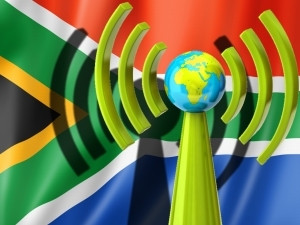
While South Africans may be gasping for more ubiquitous WiFi networks in the country, it would be amiss to say Western countries have it better than SA when it comes to the popular wireless technology's spread.
This is according to analysts, who say there is a common misconception that developed countries in the US and Europe have abundant, on-demand access to WiFi.
S'ebastien Crozier, MD of French telecoms group Orange's local operations, begs to differ though. He says WiFi is severely underdeveloped in SA - whereas Europeans have come to rely on the technology to satiate their appetites for data.
"For tourists visiting SA it is hard to understand why there is so little WiFi. This lack of accessible wireless connectivity is bad for tourism in the country."
Crozier puts the dearth of WiFi in SA down to the use of data not being important enough to local end-users. "In SA, there is a notion that data is too expensive and people should avoid using too much, but operators need to develop the use of data. When you develop the use, you increase the need. Europeans are always surprised by the low WiFi access in SA. They are used to being able to connect at any time."
Data wonderlands?
World Wide Worx MD Arthur Goldstuck says while WiFi is scarce outside the travel and hospitality industries in SA, it is a fallacy that it is freely available in Western countries.
"WiFi on demand is certainly not ubiquitous - even in the world's biggest cities, although closed WiFi networks are to be found everywhere. If you are a customer of a specific mobile network, you can take advantage of extensive WiFi 'offload', but it is not available for all networks, and not available seamlessly wherever you go in those cities."
Goldstuck says South Africans visiting European and American cities are continually stumped by the absence of simple, seamless, cost-effective WiFi. "[This is] precisely because they've been led to believe that these destinations are data wonderlands. They are not."
That being said, he notes it would not be reasonable to expect SA not to lag significantly behind European countries in WiFi rollout. "Economic development and infrastructure simply does not compare, so we can't expect WiFi to compare."
Service providers in SA have long talked about WiFi offload, says Goldstuck, but have been able to stave it off while they maximised the return from their data networks. "When long-term evolution becomes pervasive and smartphone penetration doubles in the next three to five years, the networks will come under intense pressure, and we will see increasing provision of WiFi access by mobile networks."
The technology still represents tremendous opportunity for creative solutions that fill the many gaps in connectivity in SA, he says.
WiFi lockdown
Tech analyst Liron Segev can vouch for much of Goldstuck's assertion, having recently returned from a European trip that proved to be disappointing in the WiFi department.
Segev is also no stranger to what SA has to offer, having taken the Ruckus WiFi Challenge, in which he spent four weeks only being able to connect to the Internet via a WiFi hotspot.
While he had to do without connectivity much of the time, Segev says SA is not vastly different when it comes to developed countries. "Up until about a year ago, it seemed Europe was host to pervasive open access WiFi, but I think as people started abusing it, people stopped allowing broad access."
A lot of it, he says, has to do with cost and the opportunity for money-making spinoffs. "You can find WiFi pretty much anywhere there are people, but a lot of it has been locked down and you either have to login and pay for it, or you are directed to a Facebook page, which you have to 'like' before being granted half an hour of WiFi access."
Sustainable models
Ovum analyst Richard Hurst says, in terms of urban coverage today, SA is definitely behind Europe and the US. "There was a period roughly four years ago when WiFi hotspots were being installed, but these were basically the coffee shops and the airports type of installations. Since then, one can clearly see there has been a slowdown in the rollout of these hotspots as those installing them failed to see the business benefit beyond pure marketing."
Among the several reasons for a lack of WiFi in SA, says Hurst, is the concentration by network operators on the rollout of 3G/HSPA offerings. "In this instance, the business case is clear and the operators understand the need and their ability to deliver on this need, as well as the revenue potential."
He says, in Europe and North America, WiFi deployment has been driven by the mobile network operators, which have sought to retain control over the access to these hotspots. "Users wishing to access the free WiFi hotspots simply SMS their number and they receive a code which allows them to access data services. The rationale behind this has been the offload of data traffic from the more congested 3G/HSPA networks."
SA's operators should start to follow suit as data becomes more and more a part of the mobile life of SA, says Hurst. "We can see that operators such as Telkom Mobile are starting to use their WiFi hotspots in their marketing messages as one way of gaining new customers, while concentrating on the overall network experience.
"Naturally, these deployments will be in the urban more densely populated areas of the country, where the operators are experiencing their heaviest traffic loads."
Hurst says new initiatives, which will be independent, free WiFi access, will also see some traction as more end-users are becoming familiar with the ease of connection and what they are able to do with the WiFi connection.
And there is WiFi technology ubiquity in terms of mobile devices. However, in this instance the free access will have to be supported by alternative revenue streams to sustain the model.
Share